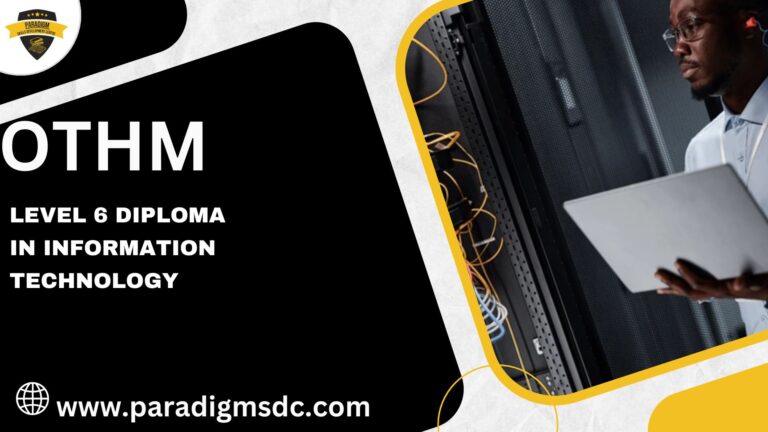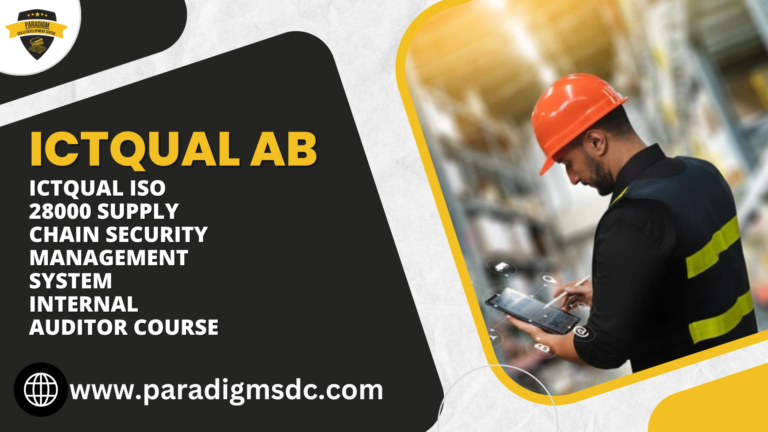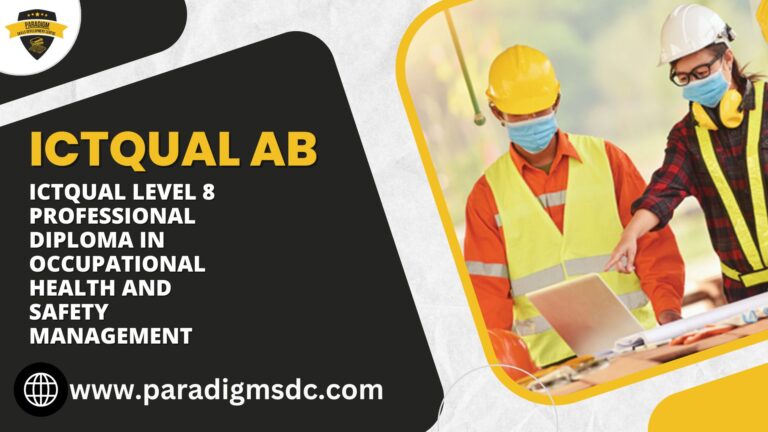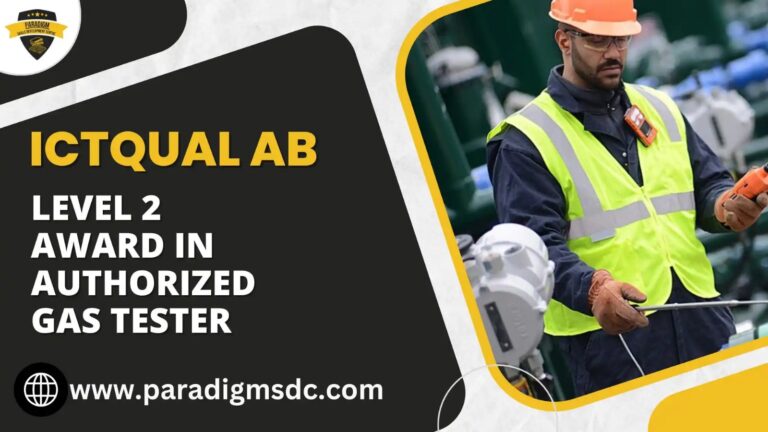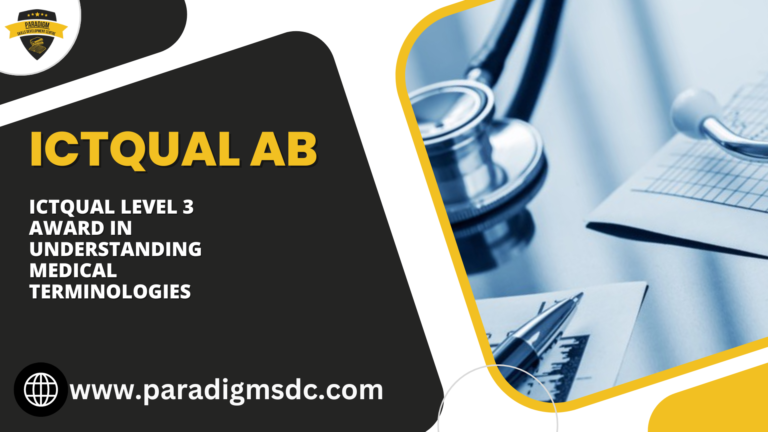Course Introduction
The ICTQual Level 3 Award in ISO 14971:2019 focuses on the application of risk management principles specifically for medical devices, as outlined in the ISO 14971:2019 standard. This course is designed to provide professionals with the knowledge and skills needed to implement effective risk management processes that ensure the safety and efficacy of medical devices throughout their lifecycle.
Course Overview
This course combines theoretical knowledge with practical application, covering the core principles and requirements of ISO 14971:2019. Participants will engage in interactive modules, case studies, and practical exercises to develop a thorough understanding of risk management processes and their application in the medical device sector. The course aims to equip learners with the expertise to identify, assess, and manage risks associated with medical devices effectively.
Course Study Units
- Introduction to ISO 14971:2019
- Risk Management Process
- Hazard Identification
- Risk Analysis
- Risk Evaluation
- Risk Control
- Risk/Benefit Analysis
- Residual Risk Evaluation
- Risk Management Reporting and Documentation
- Post-Market Surveillance and Risk Management
- Regulatory Compliance
Learning Outcomes
Upon completing the ICTQual Level 3 Award in ISO 14971:2019, participants will be able to:
Introduction to ISO 14971:2019
- Understand the Purpose and Scope: Grasp the overall purpose and scope of ISO 14971:2019 and its significance in the medical device industry.
- Familiarize with Key Concepts: Learn the key concepts, terminology, and structure of the ISO 14971:2019 standard.
- Recognize the Importance of Risk Management: Comprehend the critical role of risk management in ensuring the safety and efficacy of medical devices.
Risk Management Process
- Master the Risk Management Process: Gain a thorough understanding of the risk management process as outlined in ISO 14971:2019, including risk analysis, evaluation, control, and review.
- Integrate Risk Management: Learn how to integrate risk management activities throughout the medical device lifecycle.
- Identify Roles and Responsibilities: Understand the roles and responsibilities of different stakeholders in the risk management process.
Hazard Identification
- Develop Hazard Identification Skills: Learn to systematically identify potential hazards associated with medical devices.
- Apply Hazard Analysis Techniques: Utilize various techniques for hazard analysis and understand their applications.
- Conduct Practical Exercises: Apply knowledge through case studies and practical exercises to identify hazards in real-world scenarios.
Risk Analysis
- Understand Risk Analysis Methodologies: Grasp the methodologies for assessing risks associated with identified hazards.
- Estimate Risk Severity and Probability: Learn to estimate the severity and probability of risks accurately.
- Use Risk Matrices: Utilize risk matrices and other tools to analyze and prioritize risks.
Risk Evaluation
- Evaluate Risk Acceptability: Understand the criteria for evaluating whether risks are acceptable.
- Balance Benefits and Risks: Learn to balance the benefits of a medical device against its potential risks.
- Make Informed Decisions: Develop decision-making skills to evaluate and address risks effectively.
Risk Control
- Identify Risk Control Measures: Learn about different risk control measures and their effectiveness.
- Implement Risk Control Strategies: Develop skills to implement appropriate risk control strategies.
- Verify Control Measures: Understand how to verify the effectiveness of implemented risk control measures.
Risk/Benefit Analysis
- Conduct Risk/Benefit Analysis: Master the principles of conducting a risk/benefit analysis to justify residual risks.
- Document Risk/Benefit Decisions: Learn to document and justify risk/benefit decisions clearly and comprehensively.
- Understand Regulatory Perspectives: Gain insights into the regulatory perspectives on risk/benefit analysis.
Residual Risk Evaluation
- Evaluate Residual Risks: Learn to evaluate the acceptability of residual risks after risk control measures have been implemented.
- Manage Residual Risks: Understand methods to manage and mitigate residual risks further if necessary.
- Document Residual Risk Evaluations: Develop skills to document residual risk evaluations accurately.
Risk Management Reporting and Documentation
- Prepare Risk Management Files: Learn to structure and prepare comprehensive risk management files.
- Understand Documentation Best Practices: Gain knowledge of best practices for maintaining detailed documentation and records.
- Meet Regulatory Requirements: Ensure that documentation meets regulatory requirements and standards.
Post-Market Surveillance and Risk Management
- Implement Post-Market Surveillance: Understand the importance of post-market surveillance in the risk management process.
- Monitor and Manage Risks: Learn methods to monitor and manage risks throughout the product lifecycle.
- Handle Recalls and Corrective Actions: Develop skills to handle recalls and field safety corrective actions effectively.
Regulatory Compliance
- Align with Global Regulatory Frameworks: Gain an overview of global regulatory frameworks and their requirements.
- Develop Compliance Strategies: Learn strategies to ensure compliance with regulatory standards.
- Prepare for Audits and Inspections: Understand how to prepare for regulatory audits and inspections.
Course Benefits
- Comprehensive Knowledge: Gain an in-depth understanding of ISO 14971:2019 and its application to medical device risk management.
- Practical Skills: Develop hands-on skills through interactive training and real-world scenarios.
- Enhanced Competence: Improve your ability to manage risks effectively and ensure device safety and compliance.
- Career Advancement: Enhance career prospects in the medical device industry and related fields.
- Regulatory Compliance: Ensure compliance with international standards and regulatory requirements, reducing the risk of non-compliance issues.
Who Is This Course For?
The ICTQual Level 3 Award in ISO 14971:2019 is ideal for:
- Quality assurance and regulatory affairs professionals in the medical device industry.
- Risk managers and safety officers responsible for medical device safety and compliance.
- Product development teams and engineers involved in designing and manufacturing medical devices.
- Consultants and auditors specializing in medical device quality and risk management.
- Professionals seeking to enhance their knowledge and skills in medical device risk management.
Future Progression
Upon completing the ICTQual Level 3 Award in ISO 14971:2019, participants can further their education and career development through:
- Advanced Risk Management Courses: Pursue higher-level qualifications in risk management, including specialized courses in advanced risk analysis and control techniques.
- Regulatory and Compliance Certifications: Obtain certifications in areas such as FDA regulations, CE marking, or ISO 13485 for medical device quality management.
- Higher Education: Enroll in postgraduate programs in medical device management, healthcare quality, or regulatory affairs.
- Professional Development: Engage in workshops, conferences, and seminars on emerging trends and updates in medical device risk management and regulation.
- Leadership Roles: Progress to senior positions in quality assurance, regulatory affairs, or risk management within medical device companies or consulting firms.
The ICTQual Level 3 Award in ISO 14971:2019 – Risk Management Application on Medical Devices is an essential course for professionals dedicated to ensuring the safety and effectiveness of medical devices. Equip yourself with the skills and knowledge to navigate the complexities of risk management and advance your career in the dynamic field of medical devices.


